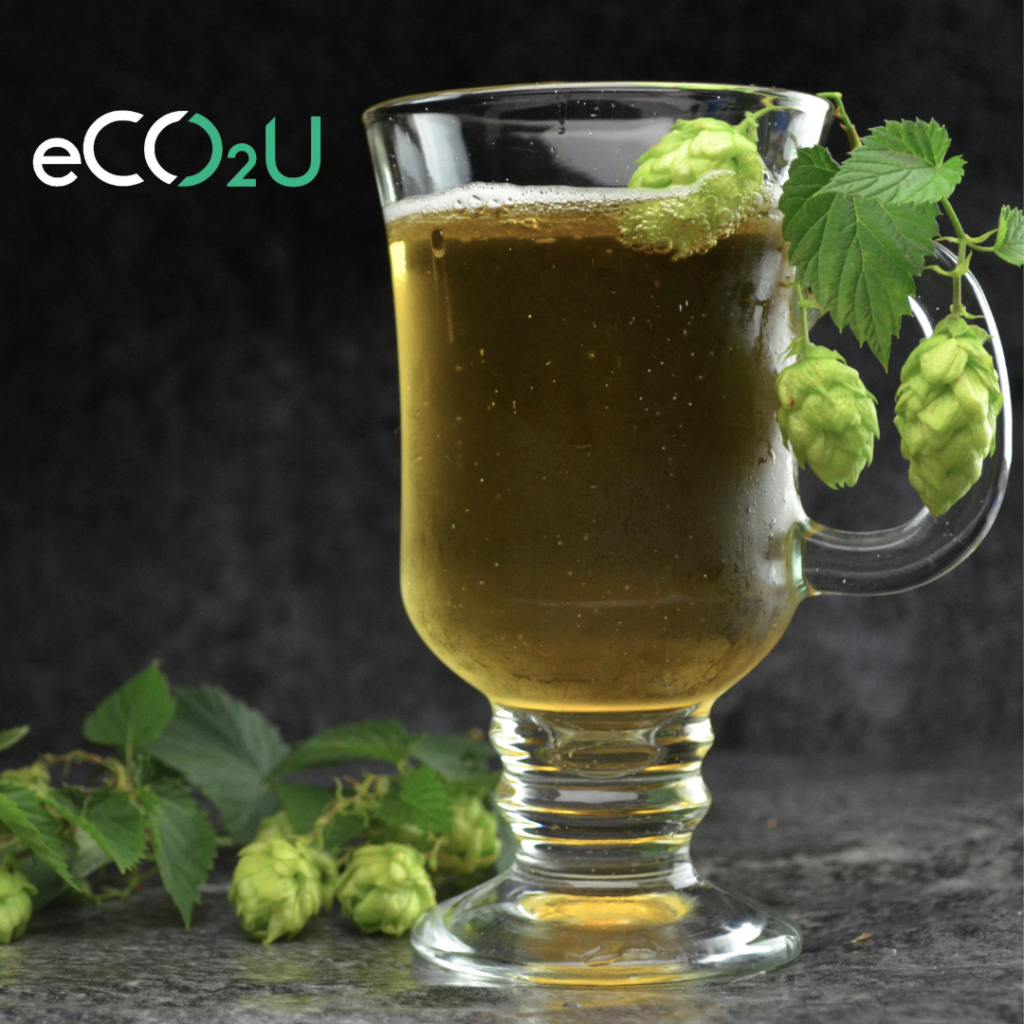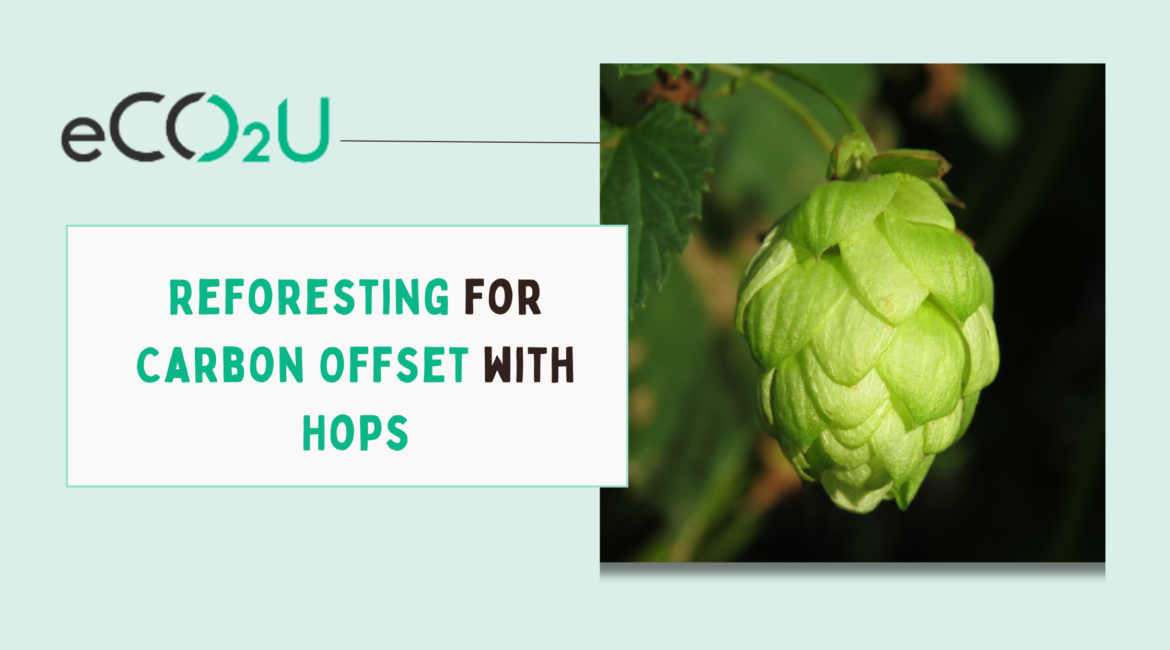Reforesting initiatives play a crucial role in mitigating climate change by sequestering carbon dioxide (CO₂) from the atmosphere. While traditional reforestation efforts often focus on planting trees, exploring alternative plant species like hops (Humulus lupulus) can offer unique environmental and practical benefits.
Hops in Carbon Sequestration
Hops are perennial climbing plants known for their rapid growth and dense foliage. These characteristics make them effective at absorbing CO₂, contributing to carbon sequestration. By integrating hops into reforestation projects, eCO2U aims to diversify the plant species used in carbon offset programs, potentially increasing the overall efficiency of CO₂ absorption.
Additional Environmental Benefits of Hops
Beyond carbon sequestration, hops offer several environmental advantages:

- Soil Health Improvement: The deep root systems of hops help prevent soil erosion and promote soil stability. This can lead to improved soil health and increased biodiversity in the surrounding area.
- Water Conservation: Hops require moderate water compared to some traditional reforestation species. Their cultivation can be managed to optimize water usage, making them suitable for areas with varying water availability.
Practical Applications of Hops
In addition to their environmental benefits, hops have practical uses that can provide economic incentives for communities involved in reforestation projects:

- Brewing Industry: Hops are a key ingredient in beer production, contributing to its bitterness, aroma, and overall flavor profile. Supporting hop cultivation can boost local craft breweries and create economic opportunities for farmers.
- Medicinal Properties: Hops have been studied for their potential health benefits, including properties that may aid in sleep disorders and anxiety relief. Incorporating hops into local agriculture can open avenues for producing natural health products.
- Culinary Uses: Beyond brewing, hops can be used in various culinary applications, adding unique flavors to foods and beverages. This diversification can create new market opportunities for local farmers.
eCO2U’s Commitment to Sustainable Reforestation
eCO2U is dedicated to advancing environmental stewardship through innovative research and development. By exploring the use of hops in reforestation, the company aims to enhance carbon offset strategies while providing additional ecological and economic benefits. This approach aligns with eCO2U’s mission to develop sustainable solutions that support both the environment and local communities.
In conclusion, incorporating hops into reforestation projects presents a multifaceted opportunity to combat climate change, improve environmental health, and offer practical benefits to communities. eCO2U’s pioneering efforts exemplify the potential of combining ecological innovation with sustainable development practices.

